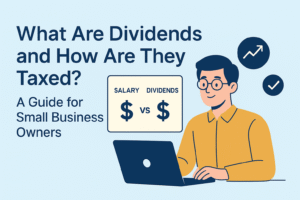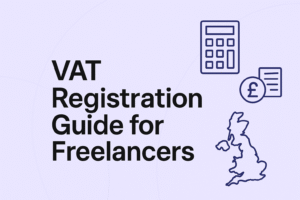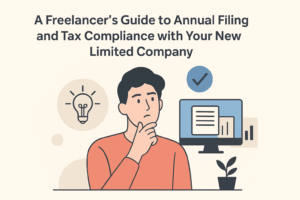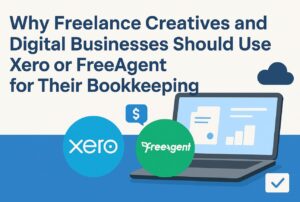
Tax Deductions & Expenses Freelancers can Claim through a Limited Company
- Expenses
- Quick Read
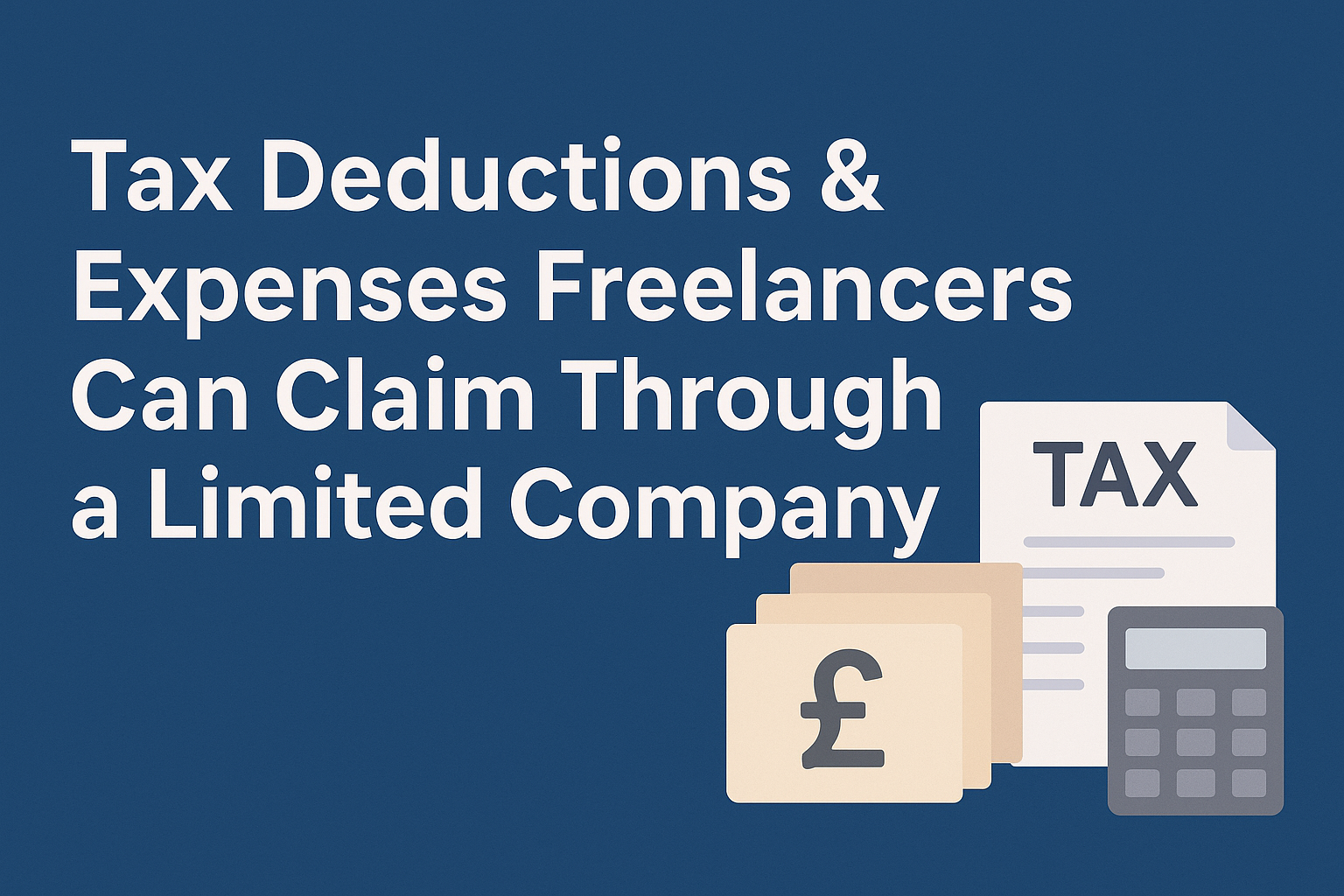
Tax Deductions & Expenses Freelancers can Claim through a Limited Company
- Recent Thinking
- By Mike Smith
- Last updated on
The Rule of Thumb is Simple
When you’re freelancing through a limited company, one of the smartest ways to reduce your corporation tax bill is by making sure you’re claiming all the expenses you’re entitled to. The rule of thumb is simple: if the cost is “wholly and exclusively” for your business, it’s usually deductible.
Below, we’ve broken down the most common (and often overlooked) tax deductions freelancers in the digital and creative industries can use to keep more money in their pocket:
Home Office Costs
If you work from home, you may be able to claim a proportion of your household costs. This can include some of the rent or mortgage interest (subject to more complex rules), council tax, utilities, internet and even cleaning costs that relate to your workspace. Alternatively, HMRC offers a simplified flat rate claim if you prefer to keep things straightforward.
Travel & Subsistence
Travel that is for business purposes can be claimed. This includes mileage in your own car (45p per mile for the first 10,000 miles), train, bus or taxi fares, and even parking and toll charges. If you are working away from your usual base, you can also claim reasonable meals and accommodation.
Professional Fees & Subscriptions
Professional costs are also deductible. This includes your accountant’s fees as well as memberships of professional bodies or trade associations, provided they are relevant to your business.
Equipment & Office Supplies
Any equipment or supplies you need to carry out your work are allowable. This includes laptops, software, cameras, design tools and office furniture. Smaller purchases are treated as expenses, while larger items may qualify for capital allowances, giving you tax relief over time. Typically you may choose to work on the basis that any equipment purchases over the value of, say £250, is treated as a fixed asset purchase in your bookkeeping, rather than as a small expense – remember these are treated differently in your tax return for your limited company although you will generally still se a full tax benefit either way.
Marketing & Website Costs
Costs associated with promoting your business are deductible. This covers website hosting, domain registration and design changes, online advertising such as Google or social media ads, and printed or digital marketing materials like business cards and flyers. Having your own website developed and built in order to generate sales online (actual sales transactions) may need to be treated as capital expenditure rather than a simply expense – chat to us if you have any queries on this.
Training & Development
You can claim for courses and workshops that directly improve your current professional skills. For example, a web designer taking an advanced UX course could claim it. However, training in something unrelated to your current trade, such as learning pottery for personal interest, would not qualify.
Salaries & Pension Contributions
The salary you pay yourself is deductible, as are employer pension contributions. Pension contributions are a particularly tax-efficient way to save for the future while reducing your corporation tax bill.
Insurance
Business-related insurance is fully deductible. This includes professional indemnity insurance, public liability cover, and insurance for your business equipment.
Bank Charges & Interest
You can also claim the costs of running your business bank account. This covers bank charges and fees as well as interest on business loans or credit facilities.
Subcontractors & Freelancers
If you outsource work to other freelancers or subcontractors, their costs are allowable against your company profits. You do need to consider IR35 and how your agreement with your subcontractor is written up, but for short term and ad-hoc project work this should not usually be a problem.
Why This Matters
Every single £ you spend on legitimate business expenses reduces your company’s taxable profit – and therefore your corporation tax bill. At the current rate, that’s a 19–25% saving, depending on your profits. By claiming what you’re entitled to, you’re not only cutting tax but also running your business more efficiently.
Takeaway
Many freelancers accidentally overpay tax by not recording and claiming all their expenses. Using software such as Xero or FreeAgent to manage your books and the support of a good accountant will help you maximise every deduction while keeping you compliant with HMRC rules.
Gain peace of mind. Free up more time. Pay less tax.
We’re ready when you are.
👉 Get in touch with us today if you’d like tailored support with annual filing, tax compliance, or managing your limited company accounts, our team of friendly accountants is here to help.
Credits and thanks: HMRC
How can we help?
At CORNEL Accountants we offer our small business clients an all-inclusive and fixed fee basis for any work we do, always agreed up-front. Why not take a look at our typical packages and get in touch for an initial discovery call and explore how we can help you?
Disclaimer:
The content included in this blog post is based on our understanding of tax and company law at the time of publication. It may be subject to change without notice and may not be applicable to your circumstances, so should not be relied upon. You are responsible for complying with tax law and should seek independent advice if you require further information about the content included in this post or guide.




